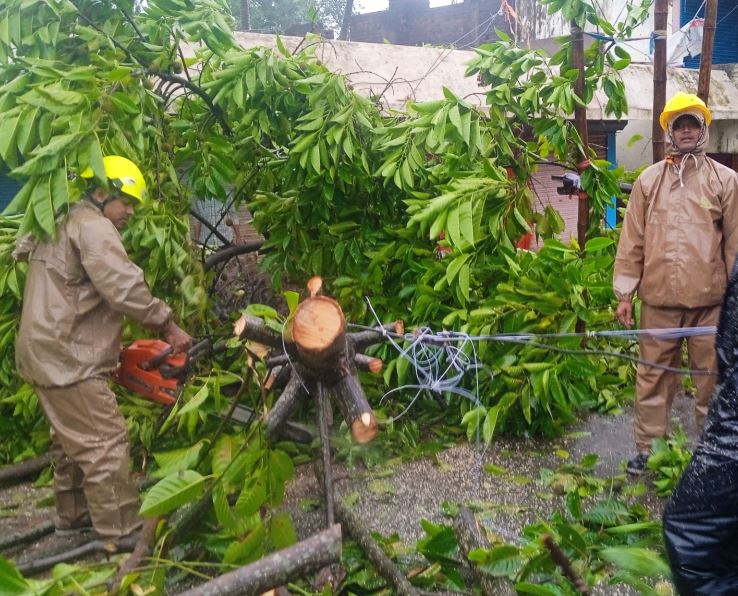Bhubaneswar/ Balasore: After successfully managing Cyclone Dana with zero-casualty goal, the Odisha government is now focused on restoration efforts following significant destruction to crops, thatched houses and public infrastructure.
The cyclone made landfall on Friday but has since weakened into a low-pressure system over northern Odisha.
“The well marked low pressure area over north Odisha persists. It is likely to weaken further and become insignificant during next 12 hours,” the IMD said at 6.30 pm of Saturday.
Many villages in Balasore and Bhadrak districts are facing flash floods due to intense rainfall, prompting the Odisha Fire Service to rescue stranded residents.
The Balasore district administration has urged those living near the Budhbalang River to shift to relief camps, as water levels have risen to 7.84 metres—above the warning level of 7.21 metres and danger level of 8.13 metres.
State Revenue and Disaster Management Minister Suresh Pujari said the government is prioritising the restoration of facilities and rehabilitation for affected residents, particularly farmers.
Assessments of house and crop damages will begin once the rains stop. Electricity has been restored in about 90 per cent of the 2.24 million households in affected districts, he added.
Pujari emphasised the need for accurate damage assessments to ensure that no deserving individuals are overlooked. Preliminary assessments indicate that several homes and agricultural lands have been affected across 14 districts. A central team is expected to visit soon for further damage evaluation, but the state government plans to start disbursing assistance and compensation immediately, he said.
Deputy Chief Minister KV Singh Deo, who also holds the agriculture portfolio, said district-level officers will conduct assessments and send geo-tagged reports of damaged crops once the rain subsides. He confirmed that 14 districts have been affected, with Kendrapara, Bhadrak, Balasore, Jajpur, and Mayurbhanj being the most severely impacted.
According to government guidelines, small and marginal farmers with landholdings up to 2 hectares and over 33 per cent crop loss due to natural calamities are eligible for compensation—Rs 8,500 per hectare in rainfed areas and Rs 17,000 in irrigated areas, with Rs 22,500 for perennial crops. Assistance decisions will be made based on district reports, agriculture secretary Arabinda Padhee said.
PTI
